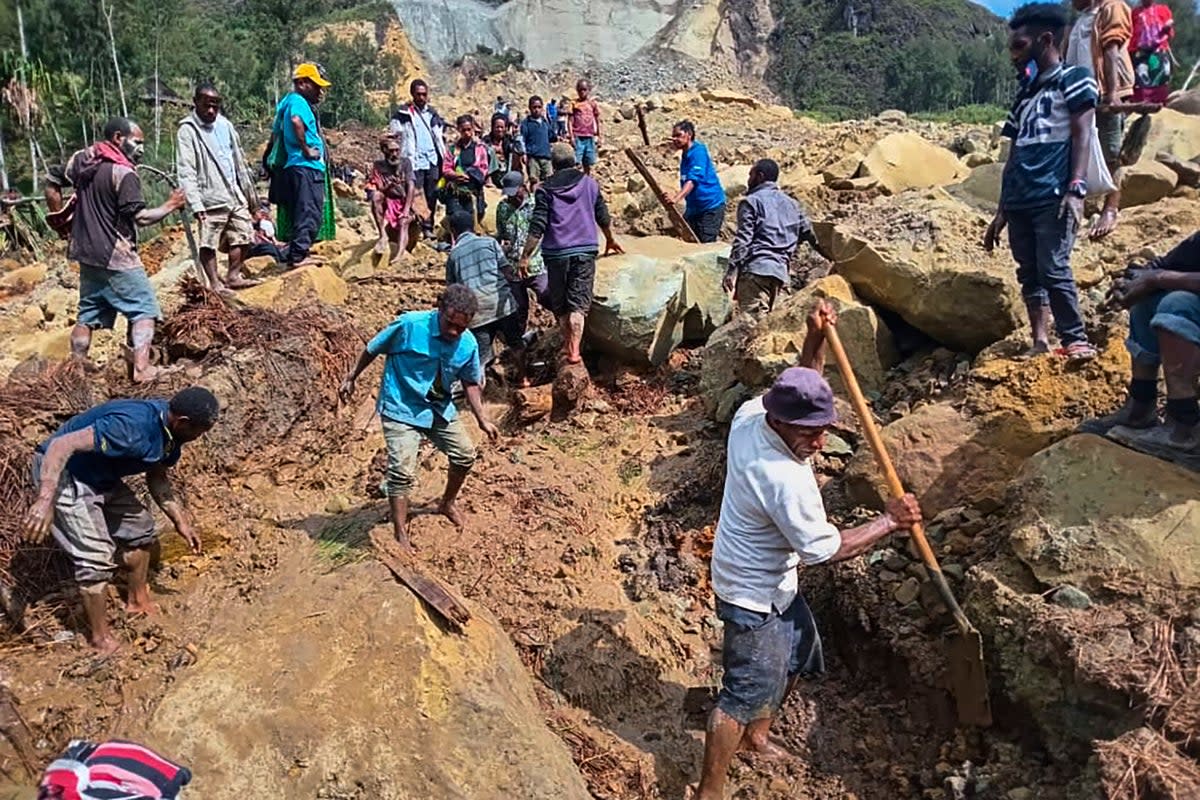More than 2,000 people buried in Papua New Guinea landslide

More than 2,000 people were buried alive by a massive landslide in Papua New Guinea on Friday, local authorities have said.
In a letter to the UN resident coordinator dated Sunday, the acting director of the South Pacific island nation’s National Disaster Center said the landslide around Yambali village in Enga province “buried more than 2000 people alive” and caused “major destruction” to buildings.
"The situation remains unstable as the landslip continues to shift slowly, posing ongoing danger to both the rescue teams and survivors alike," according to the letter.
The figure is nearly three times higher than a United Nations estimate of 670.
About 4,000 people were living near the affected area, CARE International PNG country director Justine McMahon told ABC television on Monday.
"The houses are buried under around eight metres of dirt. So there is quite a lot of debris to get through," she said.
The unstable terrain, remote location and nearby tribal warfare are hampering relief efforts in Papua New Guinea.
Australia has pledged to send aircraft and other equipment to help at the site of the landslide.
Initially, local officials had put the death toll at 100 or more on Friday. By Sunday, only five bodies and a leg of a sixth victim had been recovered.
Relief crews have been moving survivors to safer ground as unstable conditions and tribal warfare in the Papua New Guinea Highlands continue to threaten rescue efforts. The national government is considering whether to officially request more international support.
Crews have abandoned hope of finding survivors under the earth and rubble. "People are coming to terms with this, so there is a serious level of grieving and mourning," Aktoprak said.
Government authorities are setting up evacuation centres on either side of the massive debris, which covers an area the size of three to four football fields and has cut off the main highway through the province.
Convoys delivering food, water, and other supplies to the devastated village, 60 kilometres (35 miles) from the provincial capital Wabag, have faced risks due to tribal fighting in Tambitanis village, about halfway along the route. Papua New Guinea soldiers are providing security for the convoys.
Eight locals were killed in a clash between two rival clans on Saturday in a longstanding dispute unrelated to the landslide. Around 30 homes and five businesses were burned down in the fighting.
Aktoprak expressed concerns about opportunistic criminals potentially targeting the convoys for carjacking or robbery amidst the chaos.
Longtime tribal warfare has cast doubt on the official estimate that nearly 4,000 people were living in the village when a side of Mount Mungalo collapsed. The count was years old and did not account for people who had relocated to the village more recently to escape clan violence.
The numbers of injured and missing are still being assessed. By Saturday, seven people, including a child, had received medical treatment, but officials had no details on their conditions.
Papua New Guinea Defence Minister Billy Joseph and the government's National Disaster Centre director Laso Mana are flying from Port Moresby to Wabag on Sunday to gain a firsthand perspective on what is needed.
Aktoprak expects the government to decide by Tuesday whether to officially request more international help. The United States and Australia, Papua New Guinea's most generous provider of foreign aid, have publicly stated their readiness to offer further assistance.
Papua New Guinea is a diverse, developing nation with 800 languages and 10 million people, mostly subsistence farmers.


